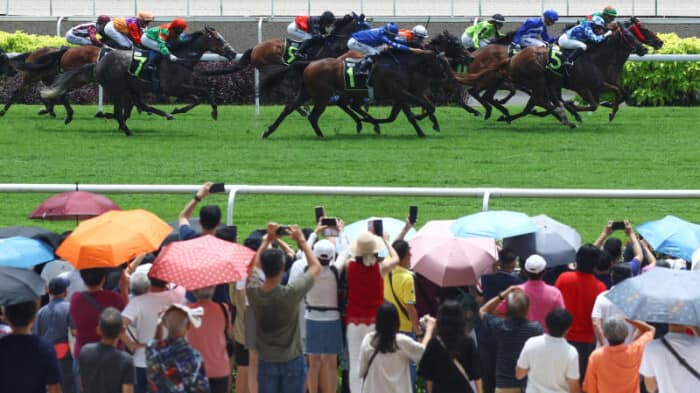
Singapore bids farewell to 181-year-old horse racing; know why
What's the story
Singapore witnessed the end of an era on Saturday as the Singapore Turf Club hosted its final race day.
The club's track, spanning over 120 hectares (300 acres), will be returned to the government for residential development.
This decision marks a significant shift in land use policy, prioritizing housing needs over traditional sports in response to the city-state's growing population, which surpassed six million this year.
Historic event
Final race day at Singapore Turf Club draws crowds
The final race day at the Singapore Turf Club was a historic event, attracting around 10,000 spectators.
The crowd included enthusiasts, socialites, and expats filling the air-conditioned VIP boxes, while older-generation punters mostly occupied the grounds and betting halls.
South African jockey Muzi Yeni won the last-ever Grand Singapore Gold Cup under a break in overcast skies.
"I'd like the government to look at it, if I have much say," he said in a post-race interview.
Changing times
Horse racing's decline and shift in sporting interests
The decision to cease horse racing in Singapore was initially met with surprise and disappointment by the riding and training community.
However, the sport had been witnessing a decline for years, with spectatorship dropping from an average of 11,000 per race day in 2010 to about 6,000 by 2019, Bloomberg reported.
The COVID-19 pandemic further reduced attendance by more than half.
New favorite
Formula 1 race dominates as new favorite
As interest in horse racing waned, younger Singaporeans have turned to other sports and pastimes.
The annual Formula 1 motor race has emerged as the city's new favorite sporting event, drawing nearly 270,000 people to its three-day spectacle and concerts in September.
The city first hosted Formula 1's night race in 2008.
Historical shift
Singapore Turf Club's journey and future housing plans
The Singapore Turf Club, originally known as the Singapore Sporting Club, held its first competition in 1843.
In 1933, it relocated to a new track at the Bukit Timah Rubber Estate.
This location served as the club's home until 1999 when it was repurposed for other recreational sports and later earmarked for residential development.
The club's final home was a S$500 million ($384 million) state-of-the-art facility capable of hosting 30,000 spectators.
Community response
End of an era: Reactions from the racing community
Tim Fitzsimmons, head trainer and director of Fitzsimmons Racing, expressed his sentiments about the closure. He stated, "Singapore was a world leader in horse racing," and its track was among the best.
Fitzsimmons, who had over 50 horses last year, is now relocating back to Australia after moving to Singapore in 2007.
Meanwhile, Song Ya Jing, a 77-year-old part-time cook attending the final race day with her husband said that while it's a nice place its glory days are over.